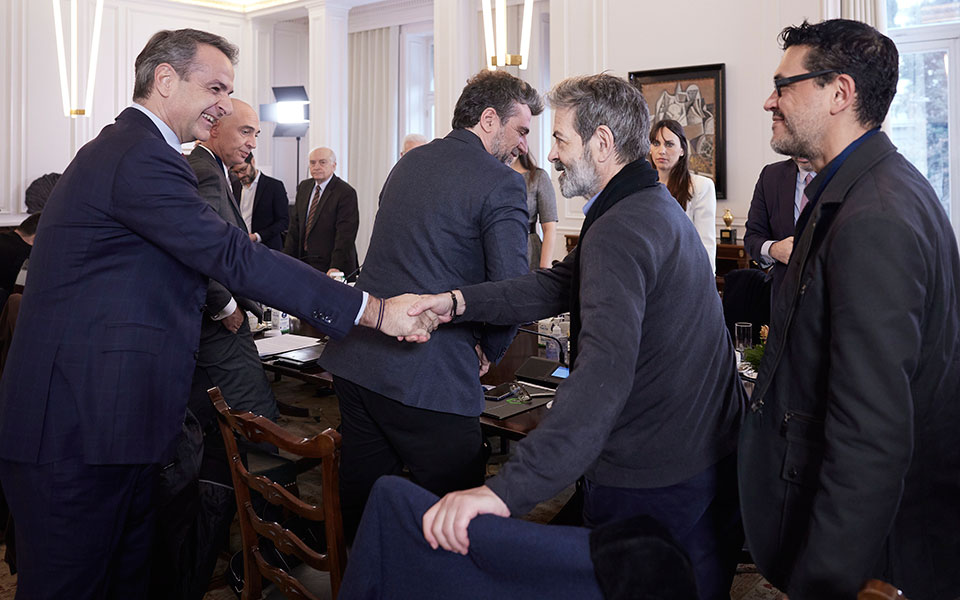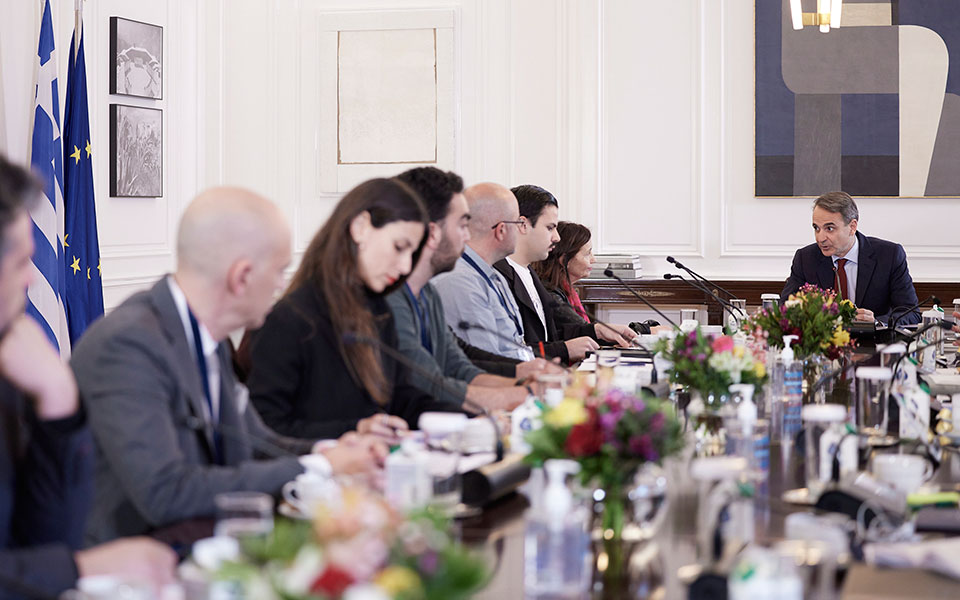
The Prime Minister’s meeting ended late Wednesday evening at the Maximos Palace. Kyriakou Mitsotakis with their representatives artistic associations and from study at art school.
At the meeting, which lasted 2.5 hours, the wishes of the artists were discussed in detail.
- Establishment of the School of Performing Arts, announced by the government. To this end, working groups have been set up, which by the end of March will present a specific framework for the nature of the School and its mode of operation from 2025. In the context of the High School of Performing Arts, admission through examinations will be assessed by graduates from other related schools.
- At the end of the weeka specific proposal will be made to the Government to solve the problem that arose in 2015 regarding differentiation in terms of wages and the level of development of graduates of theater and choreographic schools, regardless of the year of graduation (before or after 2003), to ensure artistic and educational and related work in the public sector.
- Agreement on the existence of horizontal academic permeabilitythat is, the possibility of admission of graduates of theater and related schools with qualifying exams for the 3rd semester of university departments.

“I am very glad that we are given the opportunity to have this discussion on a topic that, as you well know, has been widely discussed in society, as well as in our own minds. And let me start by saying that you have the right to feel offended by the state’s continued indifference to issues related to art education and academic recognition of your rights.
There is no doubt that many mistakes have been made in the past and by previous governments. We are not here to hide the problem under the carpet, we are here to solve problems, and we certainly have no reason or plan – because I heard them in public debate – to turn the art world against us. And I think we’re here to honestly clear up some of the misunderstandings that I think have resulted from the public debate on this.
I understand that the topic that we will discuss today is largely academic or, I would say, value aspect. I don’t think you’re primarily interested, your first priority, in how you’re going to be hired by the public, especially for subjects that have nothing to do with your artistic pursuits.
And, of course, I want to reiterate that the infamous Presidential Decree that caused all this very long debate was issued in connection with a very large ASEP competition in the context of a large effort to reform and reorganize public sector human resources. And, of course, I think – you already know this very well – that this Presidential Order does not recognize new academic or professional rights or change existing legal provisions regarding them, and that the employment of artists in the public sector for artistic work is expressly excluded from the Presidential Order. , ASEP and the unified wage fund.
In any case, with the amendment that we voted for, we returned to the previous state, that is, to what was in effect before the publication of the Presidential Decree. So we are at the point where it was before there was all this great mobilization on the part of the artists.
Therefore, what I want to understand from you today is not so much how we can cure what we judge that we have already cured within the framework of the Presidential Decree, but how to see some chronic pathologies in issues that are related to art education. , a graduation, an academic career that an artist can follow, and I hope we can come up with at least a roadmap for how we can move forward.
You will hear from us what you can and cannot do, because I think you all understand that there are also constitutional restrictions on the ability to provide private higher education. And until Article 16 is changed, this is not possible.
Of course, I must say that I will be very happy when this reform is continued, because we intend to change Article 16 in the next constitutional reform – to those who strongly protested and asked for recognition of the possibility of private education to provide degrees that would be essentially university, to support us in this great effort that we will then make.
I am stopping here. We have all relevant ministers, general secretaries and officials who can shed light on aspects of the discussion. And let me begin, because the goal is to listen to you.”

Source: Kathimerini
Emma Shawn is a talented and accomplished author, known for his in-depth and thought-provoking writing on politics. She currently works as a writer at 247 news reel. With a passion for political analysis and a talent for breaking down complex issues, Emma’s writing provides readers with a unique and insightful perspective on current events.